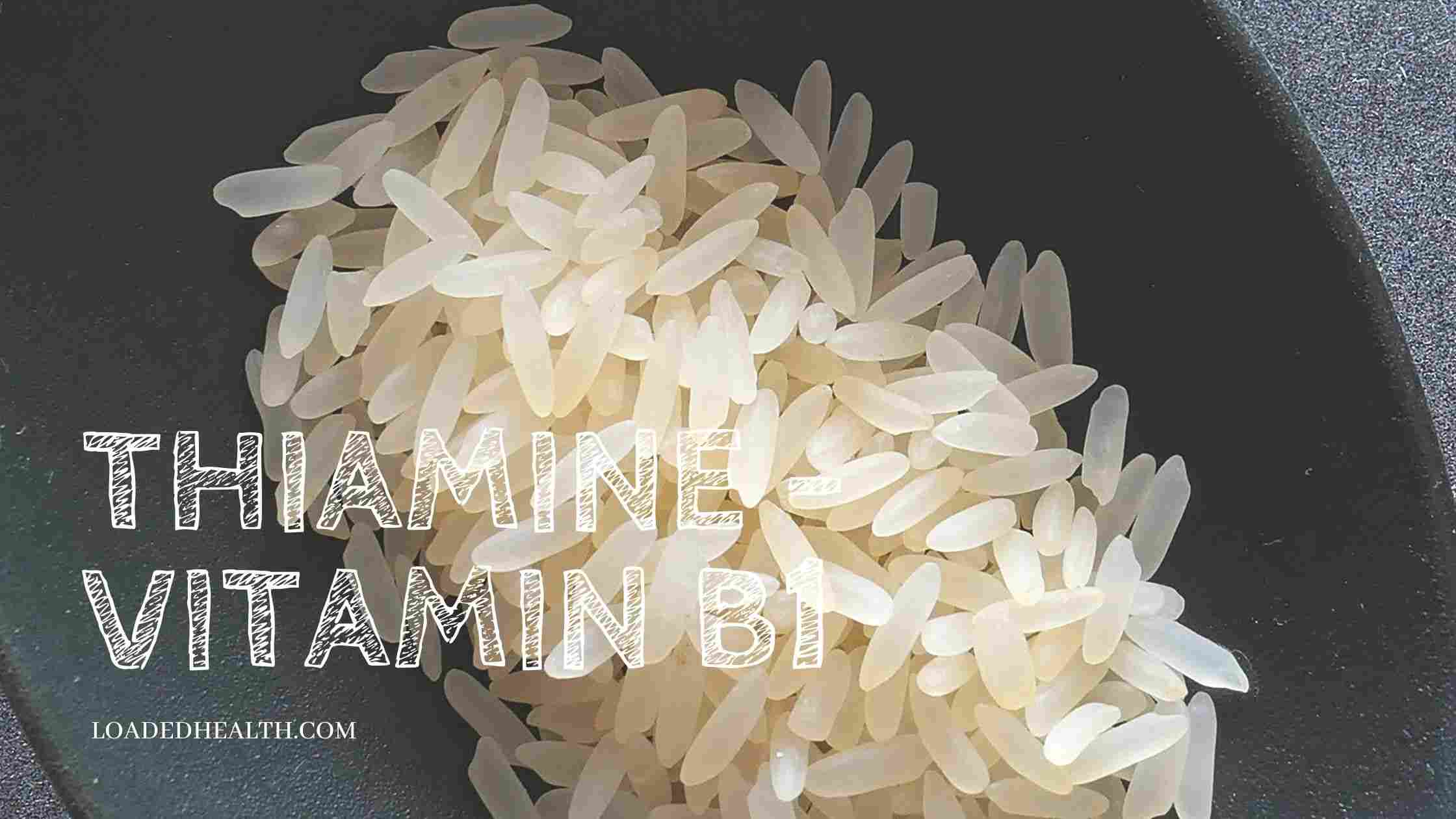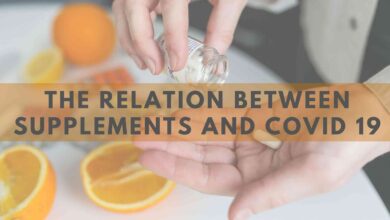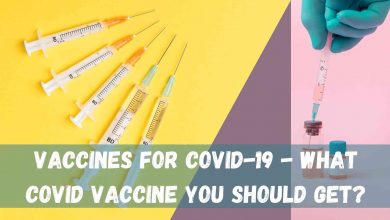Thiamine is called Vitamin B1 or thiamin. It belongs to the family of water soluble vitamins (Vitamin B complex). This article will discuss core information about Thiamine its uses, sources, RDA, Deficiency, and toxicity.
This Article Contains
How Does Thiamine Function In Your Body?
Thiamine is important for the human body as it helps the body to utilize carbohydrates properly. In the case of the deficiency, this utilization might be impaired. Vitamin B1 deficiency people are mostly teenagers, mothers, athletes, and people fighting different diseases.
Thiamine, being water-soluble, does not store in fat cells. As an energy source, it converts carbohydrate glucose into ATP. It speeds up the enzymatic process as well as breaking down fats and protein in food.
Additionally, it helps in the production of DNA and RNA, which holds our genetic makeup. Furthermore, helps the nerve cell to function properly and allowing normal neural transmissions to occur.
The Richest (Vitamin B1) Thiamine Foods
When there is a shortage, the human body needs a continuous supply of Thiamine as it does not store in the body. So, it is recommended to include a healthy, balanced diet rich in Vitamin B1 foods. The following are the top sources that are:
- Rice = white: 1.4 mg (117% Daily Value)
- Breakfast Cereals = 1 serving: 1.2 mg (100% DV)
- Egg Noodles = 1 cup: 0.5 mg (42% DV)
- Beans = 0.5 cup: 0.4 mg (33% DV)
- Mussels = 3oz: 0.3 mg (25% DV)
- Tuna = 3oz: 0.2 mg (17% DV)
- Macaroni = 1 cup: 0.2 mg (17% DV)
- Squash = 0.5 cup: 0.2 mg (17% DV)
- Whole Wheat Bread = 1 slice: 0.1mg (8% DV)
- Orange Juice = 1 cup: 0.1mg (8% DV)
In addition to these options, cereals, oatmeal, brown rice, eggs, cheese, chicken is also considered natural and rich sources of Thiamine.
Thiamine – How Much Does Your Body Need a Day?
Harvard Health Publishing, recommended a daily dose of Thiamine as follows.
An average adult man requires 1.2 mg per day. For an average adult woman 1.1 mg per day.
Thiamin can be used in a variety of ways, so your doctor can prescribe the proper dosage for you. In-depth RDA includes:
Newborn to 6 months age: 0.2mg
7 months to 12 months age: 0.3mg
1 year to 3 years of age: 0.5mg
4 years to 8 years of age: 0.6mg
9 years to 13 years of age: 0.9mg
Above 12 years of age: 1-1.2mg
Pregnancy: 1.4mg
Lactation: 1.4mg
TIP: Thiamine is best absorbed if taken between meals. It might be beneficial to take a multivitamin and mineral complex if you do not eat a balanced diet every day.
Thiamine Deficiency
It has 2 types of deficiencies primary and secondary:
PRIMARY
If your diet is Thiamin deficient. If you are taking refined carbs or you are suffering from anorexia (loss of appetite).
SECONDARY
- When your demand is increased. Like pregnancy, breastfeeding, hyperthyroidism, heavy exercise.
- If your Vitamin B1 absorption is impaired. Like in gut issues for e.g diarrhea.
- If your metabolism is impaired like in liver diseases.
Low Thiamine Symptoms: What Are They?
You might face the following symptoms if you are deficient:
- Fatigue
- Muscle weakness
- Blurry vision
- High heart rate or palpitations
- Irritability
- Memory loss
- Rapid weight loss
- Loss of appetite
- Gut issues
- Burning in feet
- Loss of appetite
- Diarrhea.
- Nausea, vomiting
- Shortness of breath
Vitamin B1 deficiency leads to diseases of the brain, heart, and organs first. There are high concentrations of Thiamine in the brain, kidneys, bones, heart, and liver. Several conditions can increase your risk for deficiency like:
- Alcohol dependence
- Bariatric surgery
- Diabetes
- Dialysis
- HIV/AIDS
- High-dose diuretic use
- Old age
- Chron’s disease
Diseases Caused by Thiamine Deficiency
Deficiency in Thiamine results in Beriberi. Two types of disease exist:
WET BERI BERI
This causes heart and circulatory problems. The heart can fail from wet beriberi in extreme cases.
DRY BERI BERI
Nerve damage causes muscle weakness to eventually result in paralysis. It is possible to die from Beriberi if you do not seek treatment.
Deficiency Contributing Towards Other Disease
- Wernicke-Korsakoff syndrome
- Dysmenorrhea
- Kidney disease.
- Type 2 Diabetes
- Cataract
(Vitamin B1) Thiamine Benefits
ATP PRODUCTION
This process allows the brain and body to do their best work. One cannot imagine life without the brain, which consumes 20% of the body’s energy to ensure the proper repair of tissues or proper functioning of the body parts and organs. By preventing deficiencies, it promotes energy production.
RESTORE QUALITY SLEEP
An important component of getting enough sleep at night is Vitamin B1 along with other B vitamins. Those with sleep issues should take these vitamins in double doses. Further, it produces neurotransmitters such as serotonin and melatonin, which cause sleep disturbances.
REDUCE STRESS
Some factors, including environmental factors, are likely to cause workplace stress. Increased productivity and workplace performance are likely to be aided by a good level of Thiamine.
IMPROVES MEMORY
Brain health and energy production requires many B-vitamins. So, the supplementation can be beneficial for preventing memory problems and malfunctions throughout the brain by improving the presence of myelin sheaths on nerves.
PROTECTS BRAIN CELLS
Brains that are fully charged are less vulnerable to fatigue, stress, and breakdowns. Having stress and fatigue is common in our modern lives. However, a healthy supply of vitamin B-1 enhances brain and nerve function.
Side Effects – Too Much Thiamine (Vitamin B1)
There is no evidence that too much Vitamin B1 will harm you, but U.S. Food and Drug Administration (FDA) warns against the use of supplements. They advise patients to consult a physician before using supplements.
The Following Tips Can Helps You Cope With Side Effects
- Eat foods rich in B1.
- Keep hydrated to avoid dehydration.
- You should take your supplement with food or just after eating.
- If you have pain, gentle movement or exercise can help.
- When you notice that your symptoms don’t improve or worsen after a few days, notify your doctor.
Frequently Asked Questions (FAQs)
WHAT DOES THIAMINE DO TO YOUR BODY?
Thiamine is an indispensable nutrient that the body needs to operate properly. It helps your body to convert food into energy.
WHAT IS THIAMINE USED FOR?
Thiamine is used to treat Wernicke-Korsakoff syndrome which is a nerve cell-related problem. Also, beriberi is wet and dry. It also prevents many diseases like cataracts, kidney issues, liver impairment, and alcoholics.
WHY DO YOU GIVE THIAMINE TO ALCOHOLICS?
B1 is given to alcoholics due to its role in the prevention of Wernicke-Korsakoff related encephalopathy. It causes confusion, muscle weakness, impaired gait, memory loss, amnesia.
WHAT ARE THE SYMPTOMS OF LOW THIAMINE?
You might face the following symptoms if you are Vitamin B1 deficient:
- Fatigue
- Muscle weakness
- Blurry vision
- High heart rate or palpitations
- Irritability
- Memory loss
- Rapid weight loss
- Loss of appetite
- Gut issues
- Burning in feet
- Loss of appetite
- Diarrhea.
- Nausea, vomiting
- Shortness of breath
DOES THIAMINE CAUSE WEIGHT LOSS?
If you are deficient in B1 your metabolism might impair leading to weight loss.
DOES THIAMINE MAKE YOU SLEEPY?
B1 deficiency is related to fatigue. So, yes if you having the deficiency you might feel sleepy. But it doesn’t contribute towards making you sleepy.
IS THIAMINE GOOD FOR THE LIVER?
Yes, it contributes to liver health a little and symptoms related to liver diseases. If taken in high quantity doesn’t actually cause liver injury.
WHY WOULD A DOCTOR PRESCRIBE THIAMINE?
Your doctor can prescribe thiamine if you have:
- Wernicke-Korsakoff syndrome
- Dysmenorrhea
- Kidney disease.
- Type 2 Diabetes
- Cataract
- Deficiency
WHAT IS A GOOD SOURCE OF VITAMIN B1?
Rich foods are Meat sources and organs. More includes dairy products, beans, nuts, lentils.
HOW CAN I GET VITAMIN B1?
You can get it from natural foods like:
- Beef liver
- Beef kidney
- Red meat
- Nuts and seeds
- See more options above.
The Bottom Line
All body tissues need Thiamine to function properly and produce energy. Mainly you get enough Vitamin B1 from regular food. Some medical problems and dietary restrictions can lead to deficiency. For that cases, extra Thiamine (Vitamin B1) from food and supplements might be needed.
If you have any of the symptoms above or have diseases that need replacement. Consult your doctor instead of getting it yourself.







